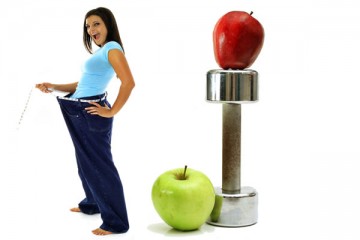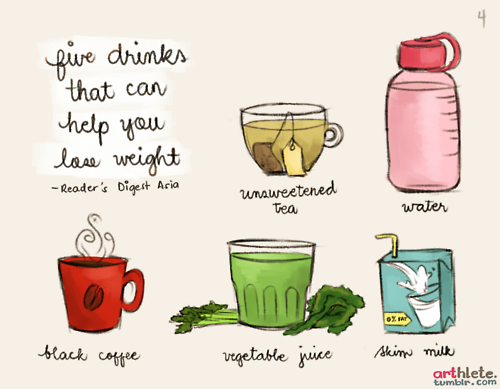How to Lose Water Weight Fast
Water retention is a body's response to a change in hormones, environment, disease or exercise. While severe fluid retention may lead to painful limbs and stiffness, many people first notice a change in weight. Unless caused by an underlying disease, this "water weight" can be controlled through diet, exercise and preventative habits. Follow these guidelines to lose water weight fast.
Steps
Method 1 Changes in Diet
-
1
Reduce the amount of salt you consume. Sodium causes you to retain water and hold it in your tissues.
- Remove processed foods from your diet, because they are more likely to contain high levels of sodium. This includes cheese, chips, cereals, canned foods and frozen foods.
- Avoid eating out. Restaurant food usually contains more mg of sodium than a home-cooked meal.
- Add foods to your diet that can help absorb and reduce sodium. These are potassium-rich foods like sweet potatoes, beets, oranges, coconut water, apricots, figs, cantaloupes and bananas.
-
2
Increase your daily intake of water. Make sure you are drinking at least 64 oz. (1.9l) of water each day.
- Although it may seem counter-intuitive to drink water when you are trying to lose water weight, increased water consumption has been shown to improve metabolism and the functions of your organs. Water will help to flush chemicals, sodium and other causes of water retention out of your system.
- If you want something in your diet with a little more taste, consider hot or iced herbal teas. You may also like water with lemon, cucumber or lime. Do not add sugar to the water, since your kidneys will need to process the sugar and it will reduce the benefits of the water.
-
3
Increase the fiber in your diet. Experts recommend 25 to 35 g of fiber per day, but many adults are only getting 10 to 15 g. Fiber will improve the efficiency of your digestive system, allowing you to shed both fluid and solid waste.
- Increase the amount of produce you eat. Fruits and vegetables are a main source of both soluble and insoluble fiber. You need both to have a healthy digestive system.
- Replace refined carbohydrates with whole grains. Choose high fiber, whole grain breads and cereals. Make brown rice, quinoa and other ancient grains to serve along with your protein and vegetables.
- Introduce fiber into your diet in stages, since your digestive system may need time to adjust. People who switch to a high fiber diet can lose 5 lbs. (2.2kg) in just a few days or a week.
- 4 Avoid high amounts of caffeine and other diuretics. Although they can get rid of some water in the short term, they can dehydrate you and cause bloating in high or regular doses.
-
5
Add coumarin-rich foods to your diet. Some sources suggest that this naturally-occurring compound can help you regulate fluid in the tissues. You should limit your consumption of coumarin to small, healthy levels,
- Sprinkle cinnamon on your cereal or in your coffee. Chamomile also contains coumarin, so consider adding a cup of chamomile tea to your diet.
- Eat celery and parsley. Add them to your recipes regularly.
Method 2 Changes in Exercise
-
1
Take frequent walks throughout the day. Fluid retention in the legs is very common amongst the elderly and inactive.
- Walk and do calf raises if you are traveling on a long-haul flight. Your body is likely to retain fluid on the journey; however, you can reduce water weight by moving as frequently as possible.
- 2 Reduce the amount of time you sit or stand in 1 place. If you are suffering from fluid retention, walking or exercising in smaller amounts 2 or more times per day may help you lose fluid faster than a single workout.
- 3 Lose weight. People who are overweight or obese are more likely to retain fluids. Starting a healthy diet and exercise routine approved by your doctor is likely to take off water weight and reduce body fat quickly.
Method 3 Water Weight Tips
- 1 Talk to your doctor about using compression stockings if you retain water in your legs. This can improve circulation and reduce water weight.
- 2 Look for medications that may be causing water retention. Non-steroidal anti-inflammatories, beta blockers and estrogen therapies can cause you to retain fluids. Talk to your doctor before reducing or stopping a medical prescription.
- 3 Get a massage to improve circulation. This relaxing activity can also reduce stress hormones that may be adding to weight problems.
- 4 Cool down in hot weather or dress warmly in cold weather. Extreme changes in environmental temperature can send signals to your body to retain water.
-
Follow These Useful Tips For Success In Weight Loss
TIP! Fad diets look like a great idea. For people who are com
-
The Solution For Obesity And Diabetes Already Exists. So Why Do So Few People Know About It?
If your appendix fails, surgery is your best option. Blocked arteries?
-
Weight Loss Tip #70: Do pull-ups to lose weight
-
Tips To Lose Weight Fast
Selecting the right weight loss program is not an easy task. There ar
-
American Obesity levels rising
It is no big story that obesity rates are rising in the US but t
-
The Worst Time Of Day To Eat Is…
Multitasking during meals is a no-no, yet most of us do it every day.
- DON'T MISS
- How To Have A Quick Weight Loss
- Lemon Detox Diet
- Healthy Weight Loss Tips
- Finding A Quick Diet Loss Plan
- Fighting Teenage Obesity
- Weight Loss Tip #11 – Do some weight training
- Another Look at Goals and Fitness
- Men Lose Weight faster than women
- 10 Things Every Fit Girl Thinks on Christmas
- Try These Easy Weight Loss Tips




